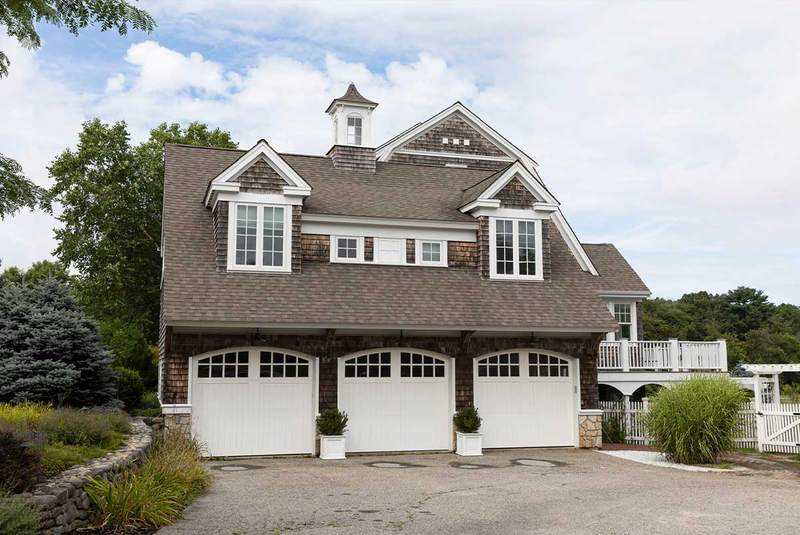Are you ready to get a mortgage but worried about your mortgage interest rate? Mortgage points, which are upfront payments that reduce your interest rate, could help. But first, you have to weigh the costs and benefits.
You’ll have to pay up front for each point you buy. Depending on how long you stay in your house, buying points could save you money in the long run. Calculating the breakeven point, where interest savings outweigh the cost of points, can help you make the best financial decision.
Let’s take a deep dive into how mortgage points work, the pros and cons of buying points, and how much they’ll cost you.
Key Takeaways:
- Mortgage points are upfront fees paid to a lender to reduce a loan’s interest rate. They typically cost 1% of the loan amount per point.
- The financial benefit of buying points depends on the breakeven timeline, or how long interest savings take to outweigh the upfront cost.
- Mortgage points can be worthwhile for long-term homeowners but may not be cost-effective for those planning to sell or refinance soon.
What Are Points On A Mortgage?
Mortgage points, often called discount points, are a way for home buyers to get a better mortgage rate on their home loan. Buying points is also called “buying down” your interest rate, because with each point you buy, your interest rate decreases. Each mortgage point costs 1% of your mortgage amount and will lower your interest rate by approximately 0.25%.
For example, if your lender quotes you a mortgage rate of 6.5% on your $200,000 mortgage, you’ll likely have the option to buy points to lower that rate. If you buy two points for $4,000, you’ll shave .50% off that rate, dropping it to 6%. This lower rate helps you save money in mortgage interest over the course of repaying your loan.
Note that points work differently on fixed-rate vs. adjustable-rate mortgages (ARMs). While mortgage points lower your rate for the duration of your fixed-rate mortgage, they lower only your initial rate with an ARM (before the interest rate enters its variable period).
Mortgage points are considered part of closing costs you’ll pay your lender and other third-party providers to originate your mortgage loan. These costs are usually 3% – 6% of your mortgage loan amount. You can pay them up front when you close on your mortgage or add them to your total mortgage amount, meaning you’d pay them back over time when you make your monthly mortgage payments.
Mortgage Points Vs. Origination Points
You might hear the term “origination points” or “mortgage origination fee” when applying for a mortgage. These aren’t the same as mortgage or discount points.
Origination points represent the fees you pay your lender to originate your mortgage loan. These will vary by lender, but one origination point typically equals 1% of your mortgage loan amount.
If you’re borrowing $300,000 and your lender charges 1.5 origination points, you’ll pay $4,500 to your lender for originating your loan.
Unlike mortgage points, origination points won’t lower your mortgage’s interest rate.
What’s Your Goal?
Buy A Home
Discover mortgage options that fit your unique financial needs.

Refinance
Refinance your mortgage to have more money for what matters.
Tap Into Equity
Use your home’s equity and unlock cash to achieve your goals.
How Do Mortgage Points Work?
There’s no set limit on the number of mortgage points you can buy. Typically, though, most lenders will let you buy only up to four mortgage points.
When you’re shopping for a mortgage and determining whether buying points makes sense, you should first calculate how long it would take you to recoup the upfront costs of purchasing these discount points. This is known as the breakeven period.
To determine a loan’s breakeven period, divide the costs of your points by how much you’ll save on your payment each month. This will give you the number of months it’ll take for your monthly savings to equal the upfront costs of your discount points.
Don’t confuse a permanent rate buydown with a temporary rate buydown. While a permanent rate buydown involves purchasing discount points to lower your loan’s mortgage rate, a temporary buydown is a short-term promotion. Lenders or builders may offer these deals, which lower your interest rate for an initial period. For example, a 3-2-1 buydown lowers your rate by 3% in the first year, 2% in the second and 1% in the third before returning to your standard rate.
Ready To Become A Homeowner?
Get matched with a lender that can help you find the right mortgage.
How Much Do Mortgage Points Cost?
Mortgage points aren’t free. One point usually costs 1% of your mortgage loan amount. If you’re borrowing $325,000, then, you’ll spend $3,250 for one point or $6,500 for two.
Because each point reduces your interest rate by 0.25%, you’ll need to buy four points to reduce your rate by a full percent.
Mortgage Loan Points Example
Knowing when it’s worth it to purchase mortgage points can help you make the best financial decision when shopping for a mortgage. Here’s an example of how to determine your breakeven point when buying mortgage points. To do your own calculations, use our mortgage amortization calculator.
Suppose you borrow $300,000 with a 30-year fixed-rate mortgage. Without points, your interest rate will be 6.5%. If you buy one point, you’ll pay $3,000 up front and lower your interest rate to 6.25%.
Your monthly mortgage payment – not including taxes or homeowners insurance – without the point you purchased would be $1,896. After buying a point, that figure falls to $1,847, resulting in a monthly savings of $49.
Knowing your monthly savings, you can now calculate your breakeven point by dividing the cost of any mortgage points by the monthly savings you’d earn. In this case, by purchasing one point, you’ll reach your breakeven point in about 61 months, or 5 years and 1 month.
If you stay in your home for the full 30 years of your mortgage, you’d save $17,640 by lowering your interest rate from 6.5% to 6.25%. You can follow the same steps to calculate your total savings if you were to buy 2, 3 or even 4 mortgage points.
Loan: $300K, 30-year fixed-rate mortgage, 6.5% interest rate without points)
Mortgage Loan Points Example
| Mortgage Points Cost | New Interest Rate | Monthly Savings | Months To Breakeven Point | Total Savings |
|---|---|---|---|---|
| 1 = $3,000 | 6.25% | $49 | 61 | $17,640 |
| 2 = $6,000 | 6% | $97 | 62 | $34,920 |
| 3 = $9,000 | 5.75% | $145 | 62 | $52,200 |
| 4 = $12,000 | 5.5% | $193 | 62 | $69,480 |
Take The First Step To Buying A Home
Find a lender that will work with your unique financial situation.
The Pros and Cons of Mortgage Discount Points
As with most financial decisions, buying mortgage points comes with both positives and negatives.
Pros
Here are a few benefits of buying mortgage points:
- You’ll lower your interest rate: This in turn lowers the amount of interest you pay over the life of your loan. Buying points could save you tens of thousands of dollars, depending on your final interest rate and the amount you borrow.
- You’ll also lower your monthly mortgage payment: A lower interest rate means a lower monthly payment. This could help you purchase a home that might otherwise be out of your price range.
- Mortgage points are tax-deductible: By buying points, you can lower the income taxes you pay if you itemize taxes.
Cons
A couple of drawbacks associated with buying mortgage points include:
- Points are expensive: They typically cost 1% of your mortgage amount. If you buy points, it could take several years for the interest savings they generate to equal the amount you pay for them. Plus, you’ll have more to pay at closing with the addition of your mortgage points.
- Points aren’t always worth it: If you plan on moving or refinancing anytime soon, you might not reach the breakeven point at which the interest savings from mortgage points outweigh the cost of buying points.
FAQ
Below are answers to a few frequently asked questions about mortgage points.
This could factor into your decision to buy points. If you have enough money to come up with a 20% down payment, it will probably make more sense to use your dollars on that than on buying points.
A larger down payment will often give you a lower interest rate, too. Talk with your lender to determine whether you’ll get a lower interest rate by making a bigger down payment or buying points.
If you plan on living there much more than 5 years, buying points will typically pay off.
To claim this tax benefit, you’ll need to fill out IRS Form 1040, Schedule A and itemize your deductions.
The Bottom Line
While mortgage points can help reduce the amount of interest you pay on your loan, buying them isn’t always the right financial choice. To determine whether or not they’re worth it, you’ll need to consider how long you plan on staying in your home and how long it’ll take your interest savings to surpass the cost of buying points. And if you’re putting down less than 20% on a conventional loan, be sure to weigh any benefit of points against the cost of private mortgage insurance.
If you’re ready to start shopping for a home, check out today’s mortgage rates.

Ben Shapiro
Ben Shapiro is an award-winning financial analyst with nearly a decade of experience working in corporate finance in big banks, small-to-medium-size businesses, and mortgage finance. His expertise includes strategic application of macroeconomic analysis, financial data analysis, financial forecasting and strategic scenario planning. For the past four years, he has focused on the mortgage industry, applying economics to forecasting and strategic decision-making at Quicken Loans. Ben earned a bachelor’s degree in business with a minor in economics from California State University, Northridge, graduating cum laude and with honors. He also served as an officer in an allied military for five years, responsible for the welfare of 300 soldiers and eight direct reports before age 25.












